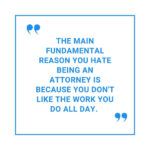Filing for bankruptcy can be a daunting process, especially when you’re facing financial hardship. Many individuals in New Jersey consider navigating this complex legal procedure without the assistance of an attorney to save on costs. While it’s legally permissible to file bankruptcy pro se (representing yourself), it’s crucial to understand the significant challenges and potential pitfalls involved. This guide aims to provide a comprehensive overview of How To File For Bankruptcy In Nj Without A Lawyer, emphasizing the importance of careful preparation and understanding of the law.
Understanding the Risks of Filing Bankruptcy Pro Se in NJ
The U.S. Bankruptcy Code and Federal Rules of Bankruptcy Procedure are intricate, and even minor errors in your filing can have serious repercussions. Court staff are legally prohibited from providing legal advice, meaning you are solely responsible for understanding and adhering to all requirements. Filing bankruptcy without a lawyer in New Jersey means you take on the responsibility of:
- Determining the right bankruptcy chapter: Chapter 7 and Chapter 13 bankruptcies have different eligibility requirements and implications for your assets and debts. Choosing the wrong chapter can lead to dismissal of your case or unfavorable outcomes.
- Understanding dischargeability of debts: Not all debts are dischargeable in bankruptcy. Navigating which debts can be eliminated and which will remain requires legal expertise.
- Protecting your assets: Exemptions in bankruptcy law allow you to protect certain assets. Understanding New Jersey’s exemptions and how to claim them correctly is vital to avoid losing property like your home or car.
- Complying with all procedures and deadlines: Bankruptcy involves numerous forms, deadlines, and court appearances. Missing deadlines or failing to follow procedures can jeopardize your case.
- Facing potential tax consequences: Bankruptcy can have significant tax implications that you need to understand to avoid future financial problems.
Why Lawyers are Invaluable in NJ Bankruptcy Cases
While filing pro se is an option, engaging a bankruptcy attorney in New Jersey offers substantial benefits. A lawyer can provide critical guidance and support throughout the entire process, including:
- Expert Legal Advice: A lawyer will analyze your financial situation and advise you on whether bankruptcy is the right course of action and, if so, which chapter is most suitable for your circumstances. They can explain complex legal concepts in understandable terms.
- Debt Discharge Assessment: An attorney can evaluate your debts and advise you on which are likely to be discharged in bankruptcy, helping you understand the potential outcome for your specific situation.
- Asset Protection Strategies: A lawyer can help you understand New Jersey’s bankruptcy exemptions and develop strategies to protect your home, vehicle, and other essential property to the fullest extent allowed by law.
- Form Completion and Filing Accuracy: Bankruptcy forms are lengthy and detailed. Lawyers are experienced in completing these forms accurately and ensuring all necessary information is provided, reducing the risk of errors and delays.
- Representation in Court: If issues arise in your bankruptcy case, or if creditors object, a lawyer can represent you in court, advocating for your rights and interests.
- Navigating Creditor Interactions: A lawyer can advise you on how to communicate with creditors and handle collection attempts, ensuring you don’t inadvertently worsen your situation.
- Tax Consequence Guidance: Attorneys can advise on the potential tax implications of bankruptcy, helping you plan accordingly.
Navigating Bankruptcy Forms and Procedures in NJ Without a Lawyer
If you decide to proceed with filing bankruptcy pro se in New Jersey, you must familiarize yourself with the necessary forms, rules, and procedures.
- Bankruptcy Forms: For individuals and married couples, use the forms in the 100 series. For businesses (corporations, partnerships, LLCs), use the 200 series. Sole proprietors also use the 100 series forms. These forms are available for free on the U.S. Courts website.
- Local Forms and Rules: Many bankruptcy courts in New Jersey require specific local forms in addition to the national forms. Check the website of the New Jersey Bankruptcy Court in your district for local rules and required forms before filing any documents.
- Pro Se Litigant Responsibilities: As a pro se filer, you are expected to understand and follow the United States Bankruptcy Code, the Federal Rules of Bankruptcy Procedure, and the local rules of the court. Ignorance of these rules is not an excuse for non-compliance.
- Non-Attorney Petition Preparers: Be cautious of non-attorney petition preparers. While they can assist with typing information onto forms, they are legally prohibited from providing legal advice. Using a petition preparer is not a substitute for legal counsel and can be risky if you rely on them for advice they are unqualified to give.
Filing for bankruptcy without a lawyer in New Jersey is possible, but it demands significant effort, meticulous attention to detail, and a strong understanding of bankruptcy law and procedure. While the prospect of saving attorney fees may be appealing, the risks of making costly mistakes are substantial. Consulting with a qualified bankruptcy attorney is highly recommended to ensure you navigate this complex process effectively and achieve the best possible outcome for your financial future.


